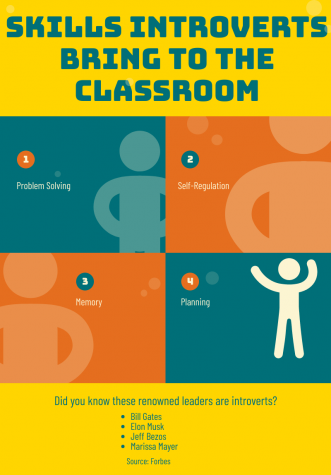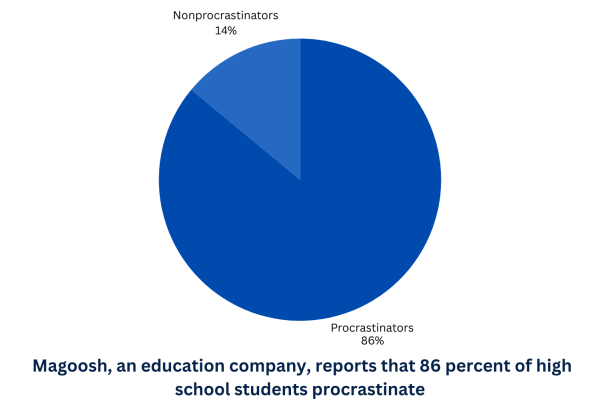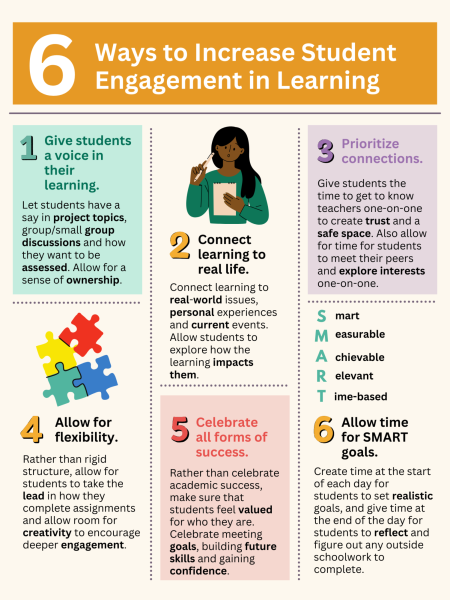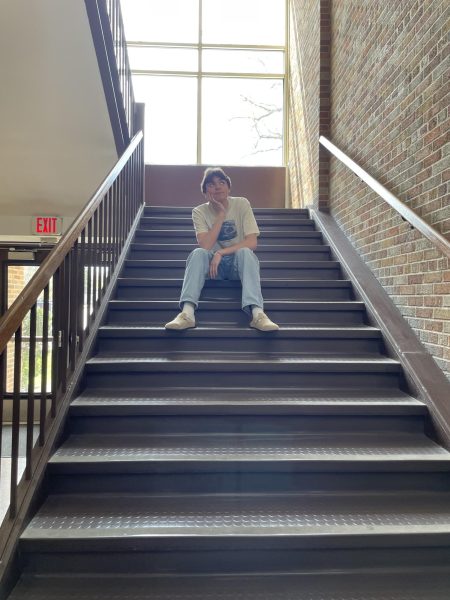High schools shouldn’t be built just for extroverts
What would schools be like without introverts? My first thought while pondering this question swirling in my head included two words: absolute chaos. All I can imagine is a classroom of extroverted students fighting over who would express their opinions, forgetting to pause and truly listen to others.
Although this may be an exaggeration, classrooms desperately need the students who will hear what others have to say and communicate when needed. Student groups would never work effectively if each and every student was a bold leader, so why are reserved students expected to live up to this ideal?

Many high school assignments base their grading on how effectively students participate in class, communicate in groups and complete presentations. But is it fair for introverted students to have some of their grades based on these skills?
It is clear within the classrooms of LHS and other high schools that introverts are limited by stereotypes and societal expectations. Schools are currently designed to build talkative leaders: extroverts.
An introvert drains their energy in social groups while an extrovert feeds from attention and communication. Carl Jung, a psychologist, created the terms as a set of extremes and most people fall somewhere in the middle of the continuum.
In high schools, teachers emphasize group assignments, active participation and required presentations or debates more than ever before in their classes.
Some may argue that schools should be targeted at extroverts because students need to develop oral communication skills, but I disagree.
Susan Cain, author of The New York Times-bestselling novel “Quiet,” expressed that “There’s zero correlation between being the best talker and having the best ideas.” Although public speaking is an important life skill and it should be practiced in classes, it should not solely determine a student’s grade.
For example, a friend who is an introvert and in one of my core classes received a lower grade for a semester because she was rarely vocal in class. Participation unfairly made up a large part of the final grade in a class that was neither speech nor debate.
Schools across the country have made an effort to become more interactive for students to foster the skills of communication and collaboration.
Libertyville High School is no exception. Many classrooms’ traditional desks have been replaced by large tables, where students are constantly interacting with their peers on a multitude of projects. In the past couple years, LHS has set up interactive spaces for extroverts to learn, such as the innovation rooms, spaces with a variety of seating that allow students to communicate with each other that can be used by teachers for a class.
Although these innovative spaces promote collaboration, these classrooms now leave little room for individual work. Introverts work best in solitude, but the time spent working independently in many classrooms has disappeared.
I have watched as several introverted students are overshadowed by vocal, opinionated high schoolers in group assignments. The current classroom methods neglect introverts’ needs to work independently. Schools need to implement more individual work to allow students to think in solitude and then return to collaborate in groups to share their ideas.
The root of schools’ bias towards extroverts is the way we misinterpret introverts as outcasts of an energetic community. Introverted students are often viewed as shy, unwilling to talk, or less courageous, but this couldn’t be further from the truth.
These introverted individuals aren’t unwilling to talk; they just prefer to discuss essential topics instead of “small talk.” These individuals can often communicate very well with groups; they just work most successfully by themselves. Debunking these myths is the first step to understanding how introverts should not be expected to be anyone other than themselves during school.
After all, working independently is an essential skill that extroverts need to learn as well. Introverted students, who value creativity and critical thinking over oral communication, need a place to learn too.
Schools’ bias towards extroverts will continue if we force collaboration into every aspect of the classroom. Communication is vitally important for schools to function and extroverts to thrive. However, a little peace and quiet to allow introverts to flourish is a good idea too.









